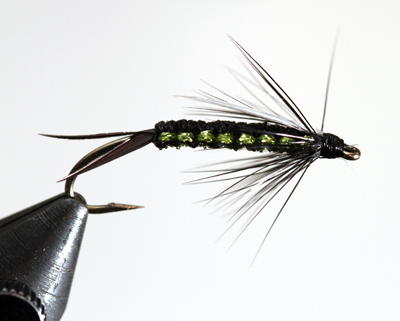|
Learning to fly (fish)
 |
Zach Urness/Daily Courier
|
There’s nothing easy about learning to fly-fish. And between tangles, snags and the subtle art of casting, it can get frustrating. Still, the practice is worthwhile ... just be sure not to accidentally stab any one with your hook. o o o oBy Zach Urness of the Daily CourierThere’s a moment, after you accidentally stab your fly-fishing guide with an errant cast but before he realizes what that sharp pain in the back of his neck is, that you think to yourself:“I wonder how he’s going to react to being hooked like a trout?” On one hard, he’s a fly-fishing guide and it’s part of the job. He’s rowing a small drift boat that will occasionally require his inexperienced clients’ to throw their wild, looping casts right over his head. Accidents are inevitable. On the other hand, he’s just been stabbed with a barbed hook that was flung wildly through the air by an incompetent boob of a fisherman. The fishing guide in question was Josh White of the Rogue Fly Shop in Grants Pass. The incompetent boob, of course, was me. But White took me nailing him with a hook pretty well. “You didn’t let the line get all the way back,” he said though gritted teeth. “The line bunches up like that when you don’t let it get all the way back.” I was impressed. If someone gouged me with a hook, I’d probably take a swing at them with an oar. I’d at least make them walk the plank. After I apologized profusely, White helped the situation by saying that he’s been hit with a hook plenty of times. He once had a client who flung a hook so powerfully off-course that it literally pierced the cartilage in his ear. A few moments later, I asked him whether anyone had ever hit him with a hook ... twice. “They haven’t found that person’s body yet,” he quipped. At this point I have to explain something: It’s not that I’m a bad fisherman, just a bad fly-fisherman. I grew up in Minnesota and have been fishing walleye all my life. I even worked at resorts outside Voyagers National Park — located near the boarder of Canada and Minnesota — where I served as a quasi-fishing guide and often filleted 40-50 walleye per day. In northern Minnesota, it goes something like this: country, God, walleye. And the thing is, nobody goes fly-fishing for walleye. So there was never any reason to try it. But that all changed when I moved west and eventually landed in Grants Pass. I’d always admired the grace of a fly line circling atop a smoothly running river. Fishing for walleye with a spinner or a jig is a complex science to be sure, but fly-fishing has always struck me as a more artistic pursuit. Finally, I decided I had to try it. Jeff Fox, also of the Rogue Fly Shop, gave me a tutorial on fly-fishing and provided a quick casting lesson once I bought my gear. The first thing I learned about casting a fly rod is that it contradicts the customary laws of propulsion. Most objects — be it a baseball, grenade, ax, or spouse — fly forward according to the force with which you toss them. The harder you throw a ball, the farther it goes. Fly-fishing is different. The harder you throw it, the more likely it is to become a tangled mess. You have to build up energy by smoothly whipping the line behind and in front of your body. This of course leads to “catching” plenty of very large trees or bushes behind you. To complicate this already complex pursuit is the infuriating practice of fly-tying. This process of interweaving thin, clear, material though a series of complex loops until it becomes a knot takes the patients of a Buddhist monk. Still, there is a sense of tranquility achieved in the seemingly endless idiosyncrasies of fly-fishing. The brain is so involved that there isn’t any room left for outside thoughts. It’s like psychotherapy without the leather sofa. This past summer, I wrote a story about wounded veterans, many of whom suffered from alcoholism and post-traumatic stress disorder, who learned to fly-fish as a sort of mental exercise in a program called “Project Healing Waters.” “Learning a new task like fly-fishing brings a connection to your body, mind and spirit,” said Russ Cooper, chief of recreation therapy service at the Veterans Administration Southern Oregon Rehabilitation Center and Clinic in White City. “Just being out in nature can make you feel like you’re part of something larger than yourself.” The fact is that learning something new, be it fly-fishing or playing an instrument, is a positive exercise. There is that stage when you’ll inevitably look like a fool, sure, but that’s true of almost anything. Just be sure, if at all possible, not to stab other people with hooks in the process.
| 




